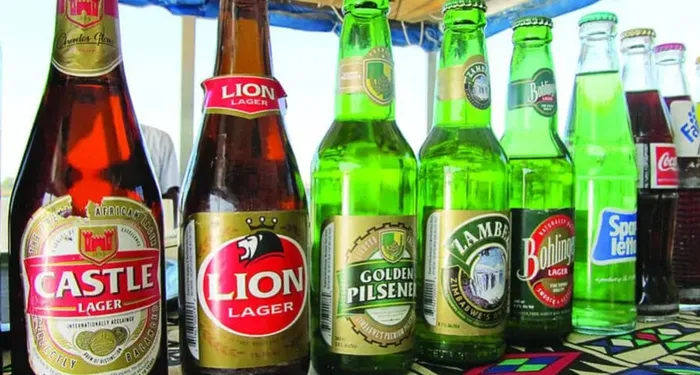Delta Corporation faces labour challenges in South Africa while thriving in Zimbabwe
MANUFACTURING

Zimbabwean beer brewer and soft drinks maker, Delta Corporation, says the United National Breweries volumes fell by 8% in the quarter to the end of June in South Afroica.
Image: Supplied
Tawanda Karombo
Zimbabwean beverage giant, Delta Corporation, is experiencing contrasting fortunes in its regional markets after it battled labour disruptions in South Africa and recorded brisk business for its lager beer volumes back home, driven by tobacco sales and resurgent gold prices.
In South Africa, Delta's subsidiary United National Breweries volumes fell by 8% in the quarter to the end of June.
Delta's company secretary, Faith Musinga, said United National Breweries “witnessed some unfortunate disruptions from labour unions and pressure groups” in South Africa during the quarter under review. However, she said this has now been resolved.
In contrast, Delta said it has been experiencing “significant changes to market channels arising from the informal sector growth, operational pressures in formal retail sectors” as well as “varied application of route-to-market” regulations in Zimbabwe.
The company also had to operate against the currency exchange rate related price distortions and challenges facing the formal retail channels in Zimbabwe.
Nonetheless, “signs of strong consumer spending” driven by what the company described as stability in the local currency exchange rate, a record-breaking tobacco marketing season and increased gold mining activity helped drive up volumes in Zimbabwe.
“Diaspora remittances are benefiting from the firming cross exchange rates such as the rand and pound, our key source markets. The pricing distortions arising from exchange rate disparities have moderated following the promulgation of revised exchange controls on pricing,” said Musinga.
This had seen lager beer volumes in Zimbabwe grow by 19% over the previous contrasting quarter. More so, demand has remained strong, “benefiting from the increase in consumer incomes” and stable pricing.
In the soft drinks category, where the company has been facing intense competition from the local Pepsi bottler, Delta volumes remained subdued over the quarter to end June. It also blamed the recently imposed high sugar content surtax, saying it was impacting on price competitiveness.
The surtax had also resulted in the influx of similar products imported from the region where the sugar tax does not apply. Smuggling is also adding to the woes for Delta.
“A total of $4.5 million in sugar tax was paid during the quarter. The prevailing sugar tax structure continues to place unsustainable pressure on the viability of the category,” said the company.
Despite these challenges, Delta raised overall revenues for the quarter by 25%, mainly as a result of volume growth in the alcoholic beverage businesses in Zimbabwe, helping to offset the price moderation in the sparkling beverages business.
About 85% of Delta’s sales volumes were undertaken in US dollar, said the company.
In a recent securities and advisory research note on Zimbabwe’s consumer sector, analysts at IH Securities said they “anticipate an uplift to volumes for consumer-facing companies this year owing to a likely recovery” in consumer spend.
However, this was against the backdrop of “general cost structures continuing to be on the rise” corresponding to a “volatile policy environment and the crystallization of costs” in US dollars.
“On the demand side, private consumption growth, which had slowed down from 4.8% in 2023 to 2.5% in 2024, is expected to have a rosier year with household spending rebounding by 6.6% in 2025,” said the report.
Zimbabwean consumer discretionary spend, however, remains subdued, with data from Zimstats recently showing average earnings of 55% of the employed population earning less than $100.
Worse still, “job losses within the past 3 months emanated mainly those engaged in agriculture and domestic activities, whilst IT and Electricity sectors had the lowest job” losses.
BUSINESS REPORT